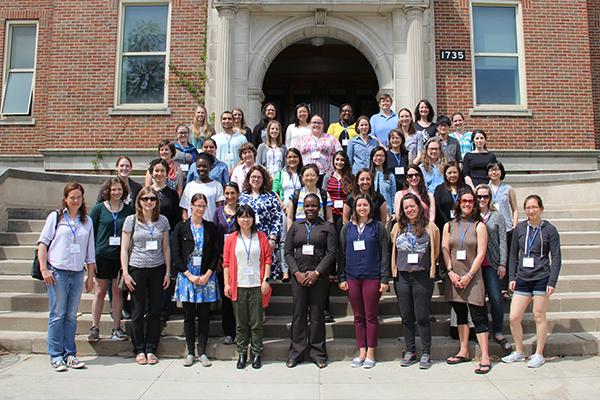
This workshop will tackle a variety of biological and medical questions using mathematical models to understand complex system dynamics. Working in collaborative teams of 4-5, each with a senior research mentor, participants will spend a week making significant progress with a research project and foster innovation in the application of mathematical, statistical, and computational methods in the resolution of significant problems in the biosciences. By matching senior research mentors with junior mathematicians, the workshop will expand and support the community of scholars in mathematical biosciences. In addition to the modeling goals, an aim of this workshop is to foster research collaboration among women in mathematical biology. Results from the workshop will be published in a peer-reviewed volume, highlighting the contributions of the newly-formed collaborative groups. Previous workshops in this series have occurred at IMA and NIMBioS.
This workshop will have a special format designed to facilitate effective collaborations.
Six senior women working in mathematical biology will present a problem and lead a research group.
Each group leader will choose a more junior co-leader, someone with whom they do not have a long-standing collaboration, but who has enough experience to take on a leadership role.
Additional team members will be chosen from applicants and invitees. We anticipate a total of five or six people per group.
It is expected that each group will continue to work on their project together after the workshop, and that they will submit results to the Proceedings volume for the workshop.
The benefit of such a structured program with leaders, projects and working groups planned in advance is based on the successful WIN, Women In Numbers, conferences and is intended to provide vertically integrated mentoring: senior women will meet, mentor, and collaborate with the brightest young women in their field on a part of their research agenda of their choosing, and junior women and graduate students will develop their network of colleagues and supporters and encounter important new research areas to work in, thereby fostering a successful research career. This workshop is sponsored in part by Microsoft Research.
This workshop is partially supported by NSF-HRD 1500481 - AWM ADVANCE grant.
